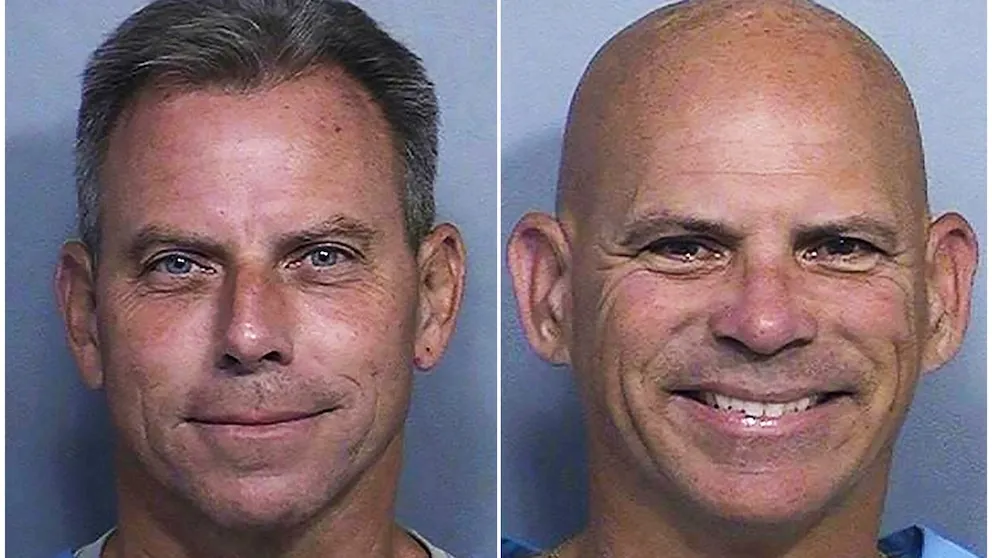Menendez Brothers’ Long-Awaited Resentencing Hearing to Begin
After decades of legal battles and public scrutiny, the Menendez brothers, Erik and Lyle, are finally facing a long-awaited resentencing hearing scheduled to commence this week. Their case, which captivated the nation in the early 1990s, raised profound questions about family dynamics, mental health, and the justice system. With the upcoming hearing, there is speculation about what the future holds for these two brothers who have spent more than half their lives behind bars.
A Brief History
The Menendez brothers were convicted in 1996 for the brutal murder of their wealthy parents, Jose and Kitty Menendez, at the family’s home in Beverly Hills in 1989. Their trial gained immense media attention, as it explored dark themes of familial betrayal and trauma. The prosecution painted a picture of two spoiled youths who killed their parents for financial gain, while the defense argued that they were victims of severe emotional and physical abuse.
The initial trials ended in hung juries, but in their second trial, the brothers were convicted and sentenced to life in prison without the possibility of parole. In subsequent years, the case took several unexpected turns, including revelations about the mental health of the brothers and calls for a retrial based on new evidence.
Reasons for Resentencing
The resentencing hearing is largely due to California’s evolving views on life sentences, particularly concerning juveniles, as both brothers were teenagers at the time of the murders. In 2012, the U.S. Supreme Court ruled that mandatory life sentences without the possibility of parole for juvenile offenders are unconstitutional. This fundamentally changes the landscape for cases like that of the Menendez brothers.
Growing awareness about the impact of childhood trauma, coupled with advocacy from mental health professionals, has prompted the legal system to reevaluate harsh sentences imposed on young offenders. The brothers’ defense team is expected to leverage this new framework, arguing that their past experiences should be considered during resentencing.
The Role of Media and Public Opinion
The Menendez brothers’ case has been the subject of multiple media portrayals, from television miniseries to true crime documentaries. These adaptations have played a significant role in shaping public perception, often oscillating between sympathy for the brothers and abhorrence for their crime. As the resentencing hearing approaches, the potential for renewed media frenzy looms large.
While public opinion can influence some aspects of the legal process, it is ultimately the court’s decision that matters most. The brothers’ legal team and supporters are likely to highlight their mental health struggles, family traumas, and the need for rehabilitation rather than retribution.
What Could Resentencing Mean for the Brothers?
A successful resentencing could lead to a reduced sentence or even parole eligibility for Lyle and Erik Menendez. What would this mean for their lives, and how would they navigate the world outside prison walls after spending decades incarcerated? It’s a prospect that raises essential questions about rehabilitation and redemption.
According to mental health experts, simple incarceration often fails to address the root causes of violent behavior. The Menendez brothers have expressed their remorse and attempted to come to terms with their actions during their time in prison. If granted the opportunity for a fresh start, they would face the dual challenge of reintegrating into society and coming to terms with their dark pasts.
The Future of the Menendez Brothers
The outcome of the resentencing hearing could potentially set a precedent for how courts handle similar cases in the future. Regardless of the ruling, the Menendez brothers’ story highlights the complexities of the justice system and the interplay of mental health, childhood trauma, and accountability.
As the hearing approaches, advocates for juvenile justice reform will be watching closely, hoping to see a shift toward more compassionate and rehabilitative approaches in cases involving young offenders. Should the Menendez brothers be granted a path toward freedom, it would serve as a landmark moment in the ongoing national conversation about justice, punishment, and redemption.
Public Response and Considerations
The public’s response to the news of their resentencing hearing has been mixed. Many feel sympathy for the brothers, identifying with the arguments surrounding their childhood abuse and pleading for empathy. Others argue that the severity of their crime warrants a lifetime in prison without parole.
The divided opinions reflect broader societal debates surrounding crime and punishment. As communities grapple with issues of justice reform, the case continues to stir conversation about what constitutes fair and just sentencing. If the hearing concludes with a more lenient sentence, it could spark further discussions around similar high-profile cases and the role of mental health in criminal behavior.
Conclusion
The Menendez brothers’ resentencing hearing is much more than a legal proceeding; it is a ticking time bomb of unresolved issues that cuts to the core of human behavior, familial love, trauma, and forgiveness. As Lyle and Erik prepare to stand before the judge once again, they carry with them decades of pain, regrets, and a desperate hope for redemption. The world will be watching, not just to see what the court decides, but to witness how a deeply troubled family narrative unfolds in a courtroom filled with echoes of violence, heartbreak, and the age-old quest for justice.







